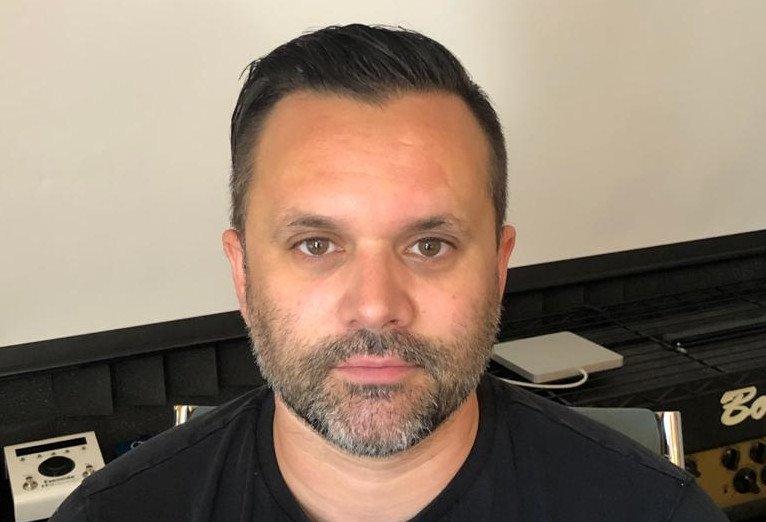October redundancies double last year's rate
- Published

Greater Manchester faced new Covid restrictions in October, like many areas of the UK
Some 842 British employers told government of plans to cut 20 or more jobs last month, as growing uncertainty about the pandemic and the government response hit business confidence.
That's more than any month on record before the Covid outbreak began, and almost two-and-a-half times the level seen in October last year.
In total they are putting 51,000 jobs at risk, over double the 2019 number.
The data was released to the BBC after a Freedom of Information request.
Though high compared to normal years, the October figures are lower than the exceptional peaks caused by the pandemic in June, July and September.

October saw rapidly rising levels of Covid-19 infections, with restrictions introduced in many parts of the UK, culminating in an England-wide lockdown announced at the end of the month.
"These figures show us that many businesses were planning lots of job losses back in October because they were very worried and concerned about the evolving economic situation, and how that would unfold over the winter," said Rebecca McDonald, senior economist at the Joseph Rowntree Foundation think-tank.
Pret a Manger, the pub and brewing groups Greene King and Marston's, and Manchester Airport were among the employers to announce redundancy plans.

Did changes to support schemes hit confidence?
The government's job support measures evolved rapidly as the virus spread.
Businesses had expected the furlough scheme, which pays 80% of an employee's wages, to end on 31 October, with little certainty about what would replace it.
Reaching more than 9 million people at its peak, the scheme helped to prevent a much bigger surge in unemployment.
Fears about the end of furlough may help to explain the exceptionally high levels of redundancies seen in the summer.
On 24 September, the less generous Job Support Scheme was announced to replace furlough. It was expanded on 9 October, and expanded again on 22 October.
Then on 31 October, the day it was due to end, the furlough scheme was extended for a month. On 5 November it was extended again until the end of March.
"I think that the messy and last-minute approach that the chancellor took to his announcements in the autumn, especially about job support packages, will have contributed to the lack of certainty and unfortunately will have cost jobs," Ms McDonald said.
The government did not reply to a BBC request for comment.

"You forget what your career is"

The curtain never went up on the 16 March performance of Phantom of the Opera in London's West End.
Laurie Kirkby, head of sound on the show for ten years, came to work as usual at 5pm. That evening the Prime Minister announced the start of the lockdown, and the cast and crew were all sent home.
"That was the last day's work we did," he says. They were furloughed for a few months, but by the end of October everyone had been made redundant.
Theatre people know it can be an insecure job, but no-one was prepared for the entire live events industry to shut for months on end.
"I do lots of different things, but it's all in live events, so trying to diversify when you can't use any of your skills anywhere, is really difficult.
"It's hard to get work because there are so many people who are unemployed. So it has affected me greatly, as it has millions of other people."
Laurie's wife, a dance teacher, has still been able to work, and her clients have been very supportive. So the family of four still has her income to rely on.
With no need for two cars, one has been sold. "There won't be holidays, Christmas will be a little more economic."
He's staying positive, doing some online courses and tackling the maintenance backlog that comes with living in an old house. But it's not easy.
"It affects your mental health because you forget what your career is, you forget what you used to do. I have not been in a theatre or done a live event since March now. It's a really strange feeling.
"You have to keep yourself focused, because if you think too hard about it… it can be damaging."

Phantom of the Opera closed after nearly 34 years on the West End

Where do these figures come from?
Companies planning to make 20 or more redundancies have to notify the Insolvency Service at the start of the process, via an HR1 Advance Notice of Redundancy form.
The total number of planned redundancies will be higher than the figures compiled by the Insolvency service, as firms cutting fewer than 20 posts don't have to notify government.
However, employers often find ways to make fewer redundancies than they initially plan.
This data gives an early indication of how many firms are considering cutting staff, before the numbers from the Office for National Statistics (ONS) pick up any change.
For the period from July to September, ONS redundancy figures saw a record quarterly increase of 181,000 to reach a record high of 314,000.
This confirms the summer spike in redundancy plans detailed in previous BBC reporting.
Employers in Northern Ireland file HR1 forms with the Northern Ireland Statistics and Research Agency, and they are not included in these figures.

Have you been made redundant due to the covid pandemic? Share your experiences by emailing haveyoursay@bbc.co.uk, external.
Please include a contact number if you are willing to speak to a BBC journalist. You can also get in touch in the following ways:
WhatsApp: +44 7756 165803
Tweet: @BBC_HaveYourSay, external
Please read our terms & conditions and privacy policy
If you are reading this page and can't see the form you will need to visit the mobile version of the BBC website to submit your question or comment or you can email us at HaveYourSay@bbc.co.uk, external. Please include your name, age and location with any submission.